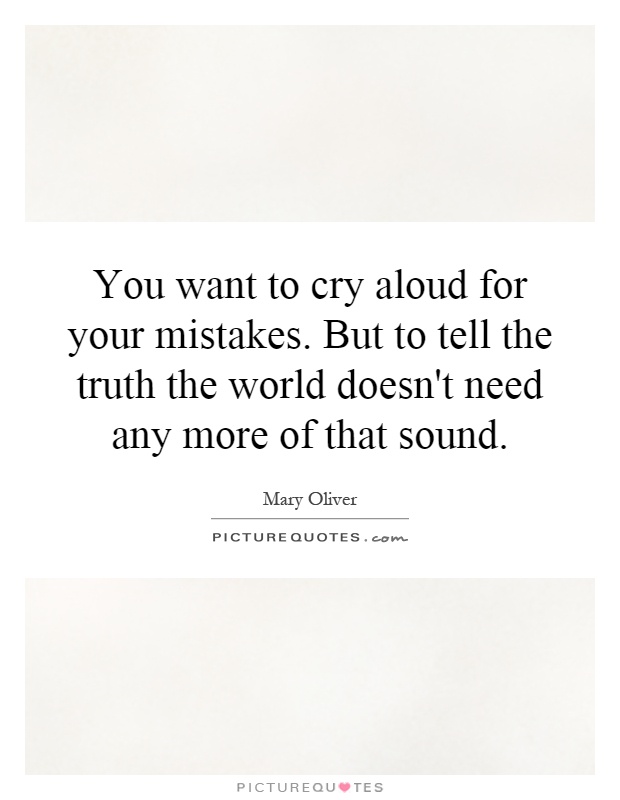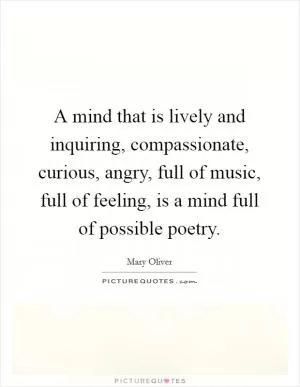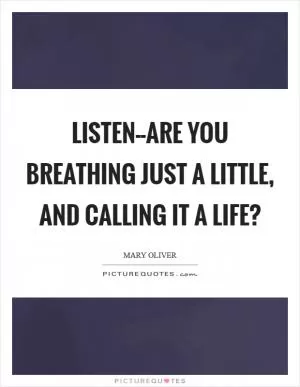You want to cry aloud for your mistakes. But to tell the truth the world doesn't need any more of that sound

You want to cry aloud for your mistakes. But to tell the truth the world doesn't need any more of that sound
Mary Oliver, the beloved poet known for her profound observations of nature and the human experience, often explored themes of reflection, forgiveness, and acceptance in her work. In the quote, “You want to cry aloud for your mistakes. But to tell the truth the world doesn't need any more of that sound,” Oliver captures the universal struggle of coming to terms with one’s own imperfections and the desire to seek redemption.Oliver’s poetry often delves into the complexities of human emotions and the inner turmoil that comes with acknowledging one’s mistakes. In this quote, she acknowledges the natural inclination to want to cry out for forgiveness and release the burden of guilt. However, she also recognizes that dwelling on past mistakes and constantly seeking validation for them may not be productive or beneficial for personal growth.
The world, as Oliver suggests, may not necessarily need to hear the constant lamentations of our mistakes. Instead, she encourages introspection, self-reflection, and ultimately, self-forgiveness. Oliver’s poetry often serves as a reminder to embrace the imperfections and vulnerabilities that make us human, and to find solace in the beauty of nature and the world around us.
In the context of Mary Oliver’s work, the quote can be seen as a call to move beyond the cycle of self-blame and regret, and to instead focus on the present moment and the potential for growth and transformation. Oliver’s poetry often celebrates the resilience of the human spirit and the capacity for healing and renewal. By acknowledging our mistakes, learning from them, and ultimately letting go, we can find peace and acceptance within ourselves.












 Friendship Quotes
Friendship Quotes Love Quotes
Love Quotes Life Quotes
Life Quotes Funny Quotes
Funny Quotes Motivational Quotes
Motivational Quotes Inspirational Quotes
Inspirational Quotes